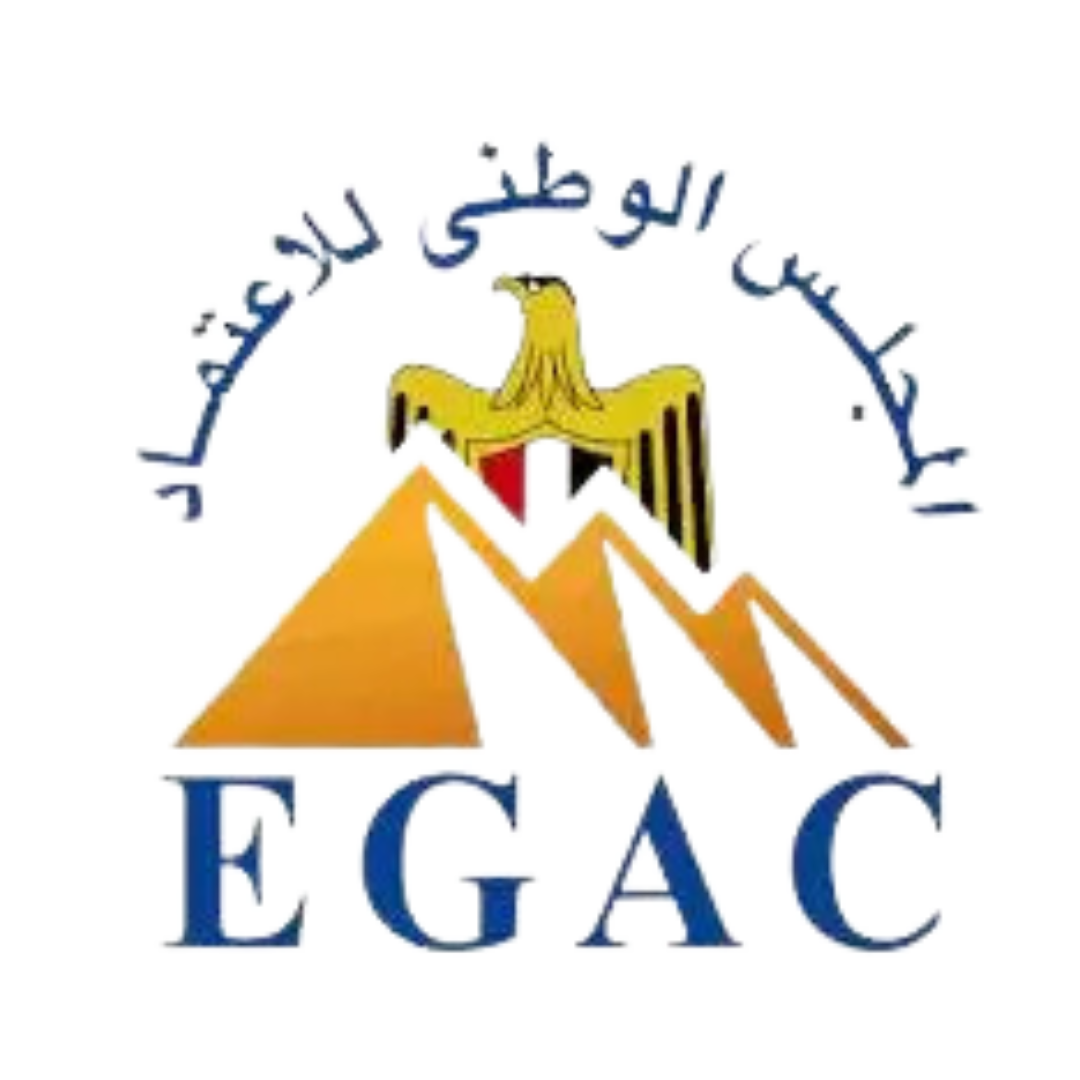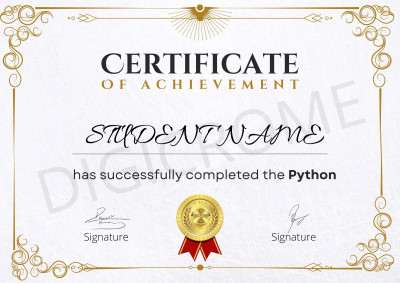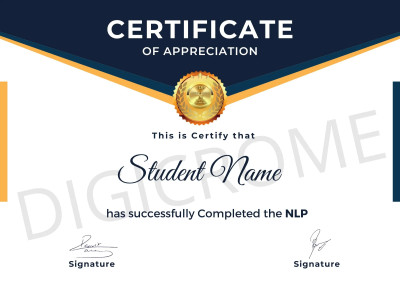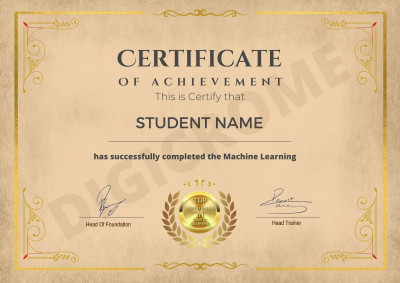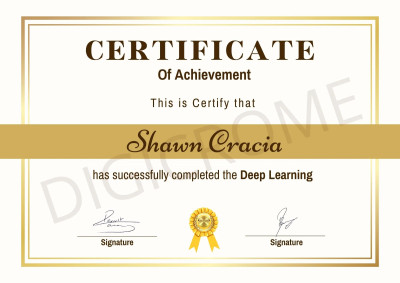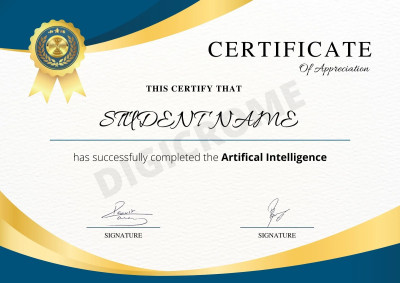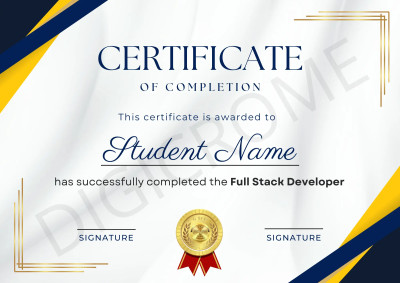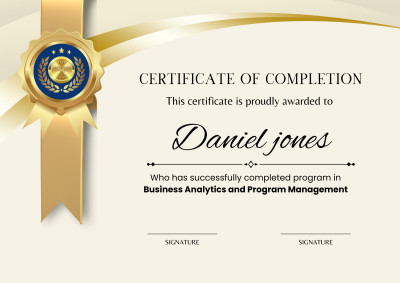Program Overview
In the rapidly evolving landscape of technology, data science and machine learning have emerged as indispensable fields, driving innovation and insights across industries. Digicrome's Advanced Certification online program in Data Science and Machine Learning is a comprehensive course designed to equip professionals and enthusiasts with the skills and knowledge needed to excel in this dynamic domain.
Why Opt for an Advanced Certification Online in Data Science & Machine Learning?
The proliferation of data has transformed how businesses operate, making data science and machine learning essential skills. This advanced certification program provides a structured learning path, covering key concepts and tools required to analyze and derive meaningful insights from vast datasets.
Digicrome's Advanced Certification Program in Data Science & Machine Learning:
Digicrome's program stands out as a beacon for those seeking an in-depth understanding of these transformative technologies. Crafted to cater to both professionals seeking career advancement and individuals aspiring to enter the field, this program offers the following
key highlights:
Comprehensive Curriculum:
The program covers a broad spectrum of topics, including Python, exploratory data analysis, machine learning, deep learning, and more. The curriculum ensures a natural progression, gradually introducing learners to interconnected facets of data science.
Expert Faculty:
Delivered by industry leaders and subject matter experts, the program's immersive lectures utilize advanced technological tools for a seamless learning experience. Dedicated program managers provide support beyond the curriculum.
Hands-On Learning:
Assignments and projects are integral to the program, allowing participants to test their skills and apply newly acquired knowledge constructively. Instructors provide detailed feedback, fostering active participation and skill development.
Networking Opportunities:
The program facilitates networking among learners, connecting them with peers, mentors, and industry professionals. Communication channels, including email, voice calls, and video calls, enhance the online learning experience.
Flexible Support:
One-on-one doubt-clearing sessions, coupled with email, voice call, and video call support, ensure participants navigate the course smoothly. The dedicated support system covers both study material-related doubts and managerial queries.
Embark on a transformative journey in the world of data science and machine learning with Digicrome's Advanced Certification Program. Gain a competitive edge in these high-demand fields, enrich your career prospects, and become an expert in harnessing data for valuable insights and innovation. Join the program to stay ahead in technology and make a meaningful impact in the data-driven landscape. Elevate your skills, advance your career, and be a leader in the dynamic field of data science and machine learning.
Advanced Certification Online Data Science and Machine Learning Course
- ₹207500.00
Features
- 06-Months Live Online Program
- Industry Expert Trainers
- 3 months internship opportunity
- Lifetime LMS Support
Key Highlights
 06-Months Live Online Program
06-Months Live Online Program Industry Expert Trainers
Industry Expert Trainers 3 months internship opportunity
3 months internship opportunity
 Lifetime LMS Support
Lifetime LMS Support
 Latest Tool & Technology covered
Latest Tool & Technology covered
 Topic Wise Case Study Provide
Topic Wise Case Study Provide
 Weekly Doubt Session
Weekly Doubt Session
 Emersive Learning Experience
Emersive Learning Experience
Program Objective
1.1 Basics Of Python
1.2 Data Structures in Python
1.3 Control Structure And Functions
1.4 OOP in Python
2.1 Python NumPy - functions
2.2 Data Wrangling using Pandas
2.3 Exploratory Data Analysis Using Matplotlib
2.4 Exploratory Data Analysis Using Seaborn
2.5 Data Visualization using Plots
2.6 Web Scraping
3.1 Introduction to Statistics And Understanding the Data
3.2 Descriptive Statistics, Measures of Central Tendency, and Dispersion
3.3 Inferential Statistics
3.4 Probability Distribution, Confidence intervals, and hypothesis testing
3.5 Sampling Techniques
3.6 Statistical significance using p-values
3.7 Regression Analysis And Correlation Analysis
3.8 Introduction to Bayesian statistics
4.1 Tableau Overview and its implementation
4.2 Power BI-Overview and Its implementation
4.3 Google Data Studio and Its implementation
4.4 Data Analysis using SQL
1.1 What is ML
1.2 Why ML
1.3 Types of ML
1.4 Main Challenges - Overfitting, Underfitting, Poor Quality data, Irrelevant Features etc
1.5 What are Hyperparameters
1.6 How to Select ML model
2.1 Accuracy
2.2 Recall
2.3 Precision
2.4 F1 Score
2.5 Confusion Matrix
2.6 Classification Report
2.7 Precision/Recall Tradeoff
2.8 ROC Curve
2.9 AOC Curve
2.10 Binary and Multilabel Classification
2.11 Feature Engineering and Feature Importance/Selection
3.1 Gradient Descent and Stochastic Gradient Descent
3.2 Logistic Regression
3.3 K Nearest Neighbors
3.4 Naive Bayes
3.5 Support Vector Machines
3.6 Linear Discriminant Analysis
3.7 Decision Trees
3.8 Hyperparameter Tuning - GridSearchCV and RandomizedSearchCV
4.1 Bagging - Eg: Voting Classifiers
4.2 Boosting - XG Boost, Adaboost, etc
4.3 Cross-Validation
4.4 Random Forest Classifier
4.5 XG Boost Classifier
4.6 Stacking
4.7 Hyperparameter Tuning
5.1 Simple Linear Regression
5.2 Multiple Linear Regression
5.3 Polynomial Regression
5.4 Cost Function and Gradient Descent
5.5 Performance Metrics - MSE, RMSE, MAE etc
5.6 Heteroskedasticity, Normality and Correlated Errors
5.7 Hyperparameter Tuning
6.1 Decision Tree Regressor
6.2 Support Vector Machines
6.3 K Nearest Neighbors
6.4 Random Forest
6.5 Boosting
6.6 Hyperparameter Tuning
7.1 Introduction to Unsupervised Learning
7.2 K Means Clustering
7.3 Hierarchical Clustering
7.4 Model-Based Clustering
7.5 DBSCAN
7.6 Anamoly Detection using Gaussian Mixtures
Dimensionality Reduction - Principal Component Analysis (1 class on this topic )
Recommendation Systems (2 Class on this Topic )
Our Certificates
Certified by
